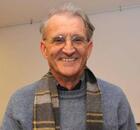
Pedro Costa. He initiated his ecology in the antinuclear struggle of the years 1973-1982, abandoning his profession of Engineer (1969-1974) related to the nuclear industry. He restarted him as a journalistic collaborator in a citizen, downtown, triumph ... (1974-1979), reorienting later as an environmental consultant (1979-2007). In that long period he compatible the militant activity of him with the elaboration of a quarantine of studies and environmental projects, acquiring a broad knowledge of the country and his problems. He has maintained, until today, an intense activity as an ecopolitical articulist.
He graduated in political science and sociology (1975), doctorate in 2005 with a thesis on "coast sociology", and also in journalism (1980). He has been a professor at the Complutense University of Madrid (2000-2001) and the Polytechnic University of Madrid (2001-2015), where he has retired. Between 2008 and 2019 he has taught Doctoral Courses in Guatemala, first on behalf of the Pontificia University of Salamanca, and then at the University of San Carlos (center of Jalapa). In 1998, the National Environment Prize was granted.
His first works were nuclearizing Spain (1976), energy: fraud and debate (1978), towards the ecological destruction of Spain (1985) and electromagnetism (silent, ubiquitous, disturbing) (1996), continuing with geographical-territorial works, As a natural guide of Spanish coasts (1990) or natural guide of the Spanish mountains (1993), among many other works published solo or in collaboration. In ecologiad (one hundred battles) (2011) he recapitulated his stage of greater activism, and in science, technology and society in engineering studies (2016) he wanted to be given to students of technical teachings the pedagogical summary of his passage from the school of Technical Telecommunication Engineering from Madrid, where it has been a student and teacher.




